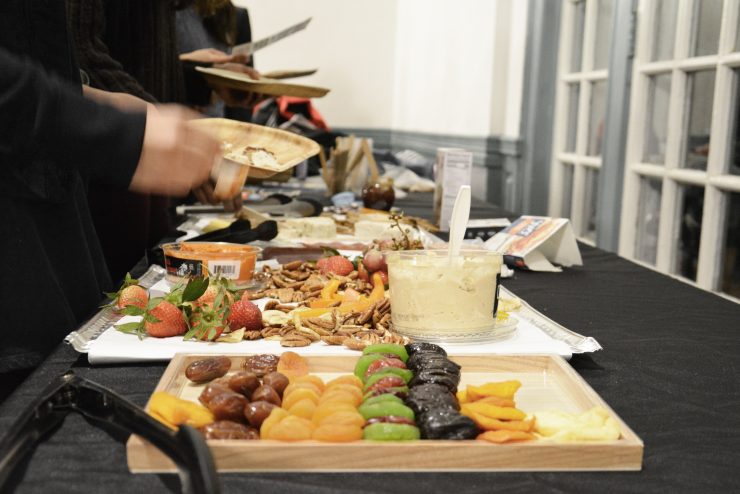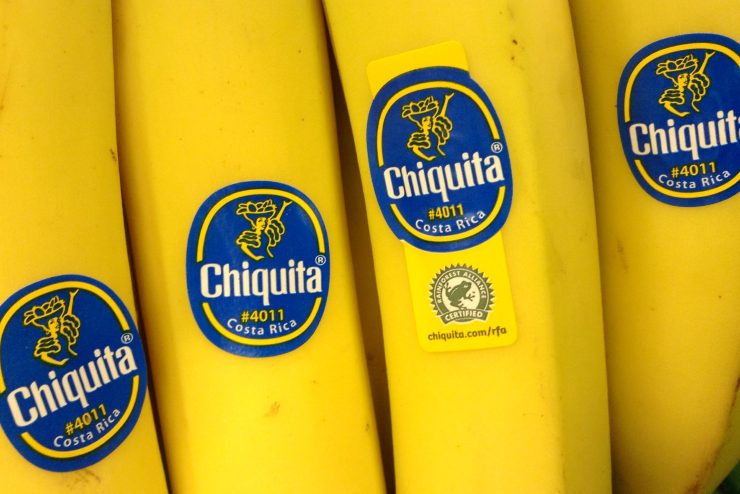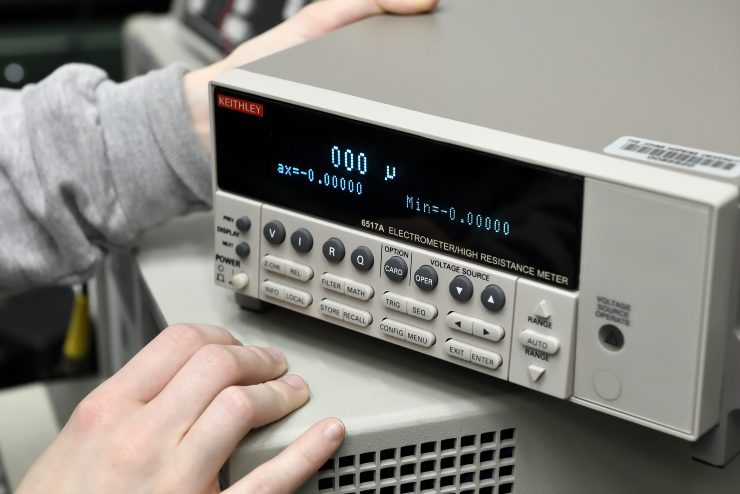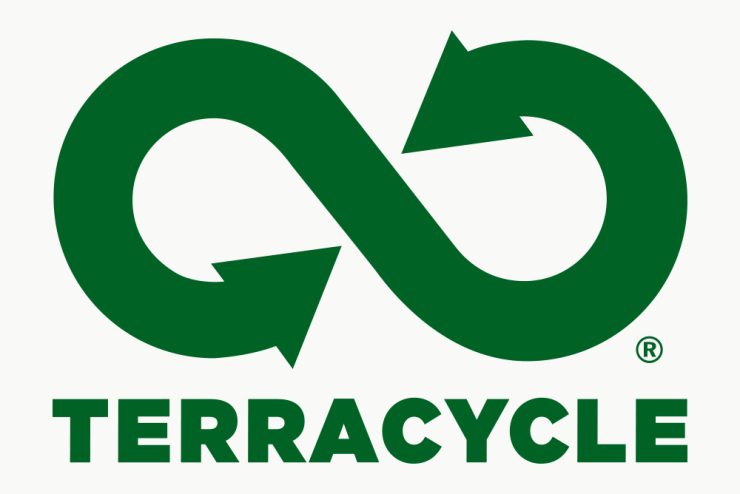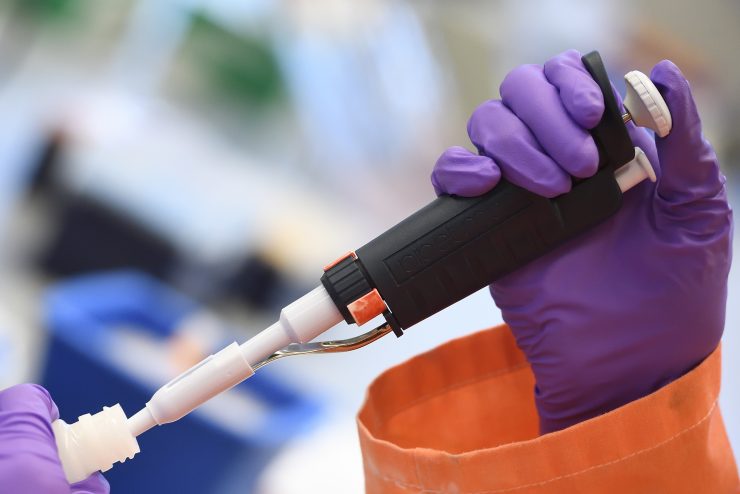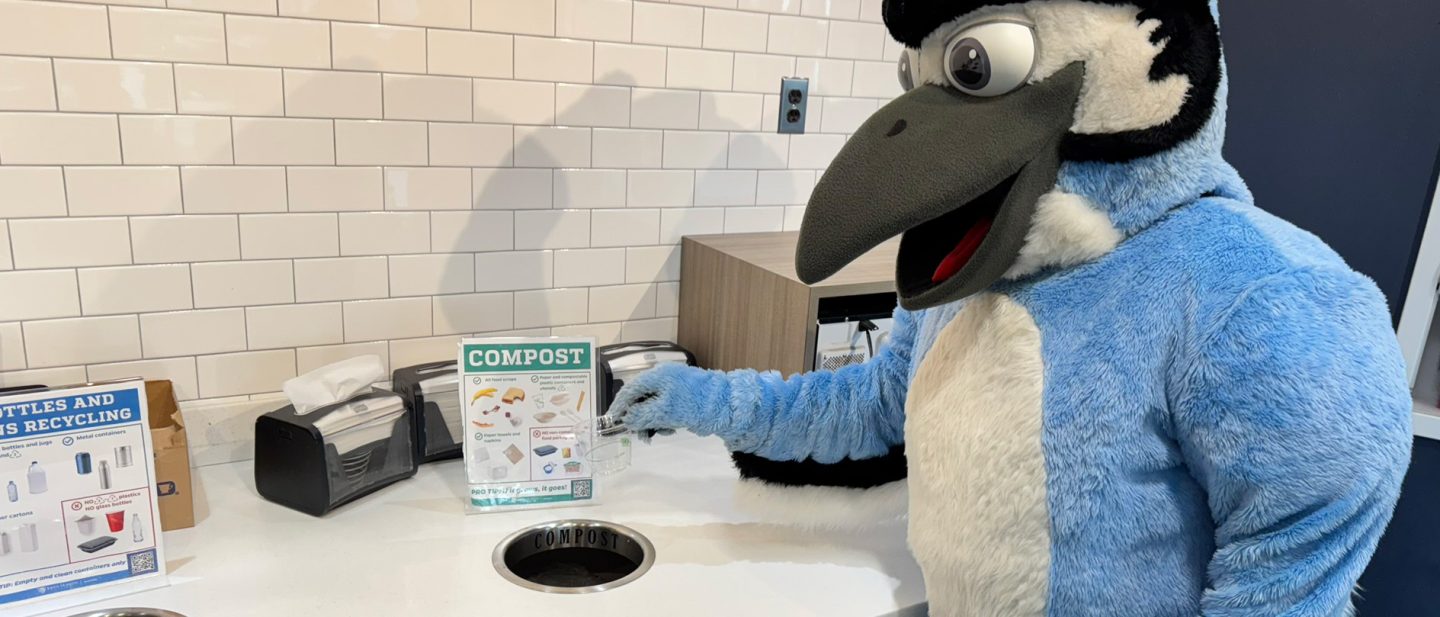
Many JHU locations have different waste sorting systems, and it is important to educate yourself on proper disposal practices. Help avoid contamination and unintentionally sending material to incineration or landfill by following these guidelines!
Included in JHU’s Climate Action & Sustainability Plan is a universitywide goal to increase our waste stream diversion to 50% by 2030. To help support this goal, JHU is in the process of standardizing waste management infrastructure across the university, including shifting to a standard system of waste bin colors and signage across all campuses.
Compost (Green Bins)
Composting is available at all Hopkins campuses! (Availability on Peabody campus limited to dining hall.)
Wait!
Before putting food waste from your campus event into the compost, post it to Free Food Alert to share it with students, faculty, and staff.
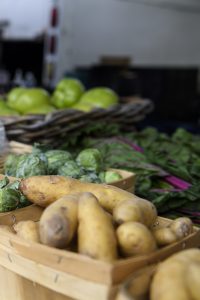
| ACCEPTED |
| Fruits and vegetables |
| Meat and dairy products |
| Grains |
| Compostable plastic including #7 or PLA |
| Food or beverage paper products — paper plates or napkins, paper or fiber-based food containers, coffee cups |
PRO TIP: If it grows, it goes!
Remove Produce Stickers!
Before you compost your fruit peels, be sure to remove the sticker and dispose of it separately. Those aren't compostable (yet)!
JHU affiliates and Baltimore community members alike can drop off their compost on the Homewood campus (at the Mudd/Levi lot behind Mudd Hall) and on the East Baltimore campus (in front of CRBII), both available 24/7. If neither JHU location is convenient, find another Baltimore City food scrap drop-off location near you!
In September 2023, JHU partnered with the Baltimore City Department of Public Works to expand their Residential Food Scrap Drop-Off Program. With funding from a USDA-administered grant that DPW received, JHU established two new sites expanding access to composting across the city. Since the program’s start, over 4,900 lbs of waste have been collected and composted from 626 visits. While that initial grant ended in March 2025, the JHU drop-off program continues.
If neither JHU location is convenient, find another Baltimore City food scrap drop-off location near you!
Homewood campus – at the Mudd/Levi lot behind Mudd Hall
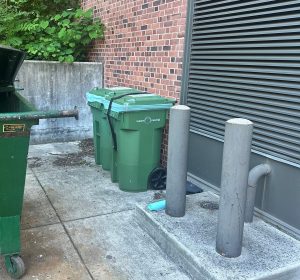
East Baltimore campus – in front of CRBII
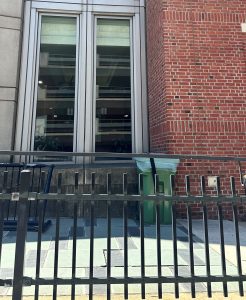
Recycling (Blue Bins)
JHU’s campuses use two recycling systems: dual stream and single stream. Dual stream recycling means that paper and cardboard are separated from plastic, metal, and glass items, whereas single stream recycling means they can be combined.
- Dual Stream | Homewood, Keswick, School of Medicine, Mt. Washington
- Single Stream | APL, Bloomberg School of Public Health, D.C., Eastern, School of Nursing, Peabody
Review the menus below for more detailed information on what can and cannot be recycled at JHU:
Paper and Cardboard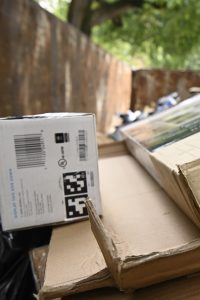
| ACCEPTED (IF CLEAN AND EMPTY) | NOT ACCEPTED |
| All Office Paper | Food or beverage paper products, including coffee cups, pizza boxes, and paper plates or napkins |
| Envelopes | |
| Newspapers | |
| Magazines | |
| Cardboard and Paperboard Boxes | |
| Books |
PRO TIP: Staples and paper clips acceptable.
Metal, Plastic, and Glass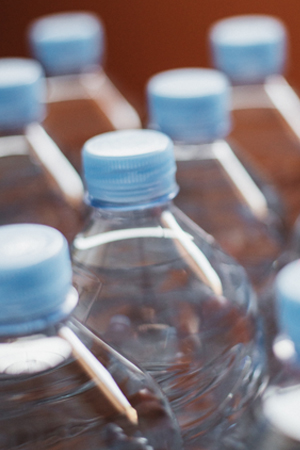
| ACCEPTED (IF CLEAN AND EMPTY) | NOT ACCEPTED |
| Steel and aluminum items | #3-#6 plastic containers |
| #1 plastic bottles and jugs | Styrofoam* |
| #2 plastic bottles and jugs |
Grocery bags |
| Plastic wrap | |
| Glass** |
PRO TIP: Empty and clean containers only.
*Styrofoam #6 can be collected separately and recycled on the Homewood Campus by submitting a work order here.
**Glass is only accepted in academic spaces at Homewood.
Specialty Recycling
Prevent many more items from reaching the landfill by taking advantage of the specialty recycling programs and options available at particular locations, or upon special request, on various campuses.
Electronics
Electronics such as computers, laptops, monitors, printers, and cords can be recycled on all campuses by contacting the appropriate divisional Facilities Office.
Terracycle
Hard-to-recycle items like writing utensils, chip bags, wrappers, personal care products, and more can be recycled at the Homewood Campus through Terracycle. Submit a work order below.
Lab Supplies
Visit our Green Labs page for information on recycling in labs at Homewood and the School of Medicine, or check out the guidance document.
Incinerate (Gray Bins)
Items that are not able to be composted or recycled must be sent to landfill.
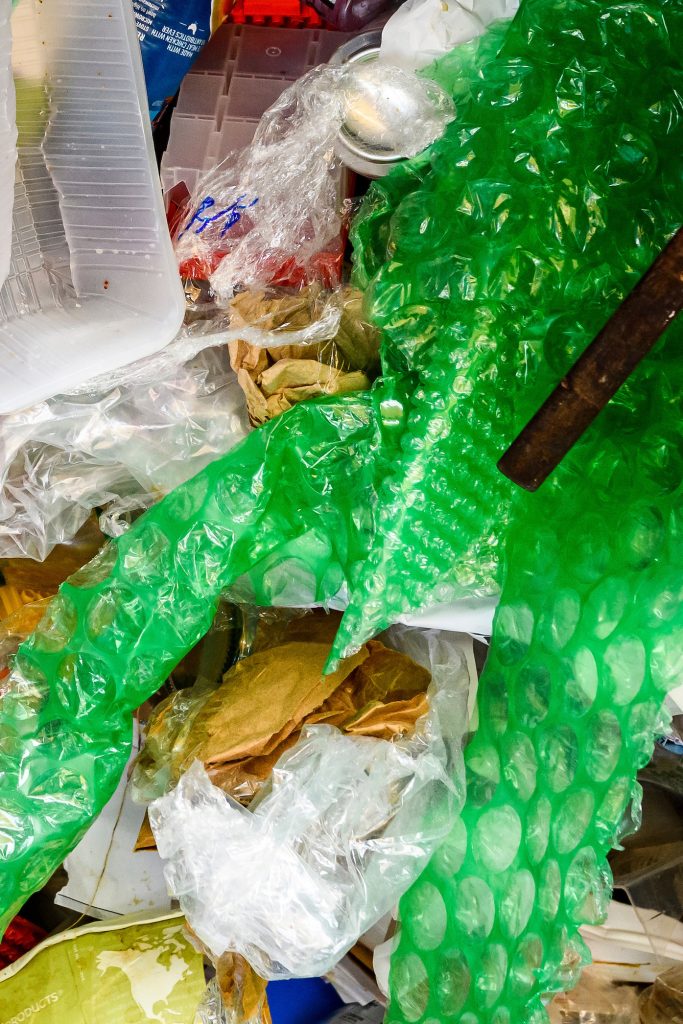
| ACCEPTED |
| Non-compostable or recyclable food packaging and wrappers |
| Plastic bags |
| #3-#6 plastics |
PRO TIP: When it doubt, throw it out.
